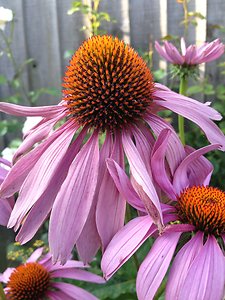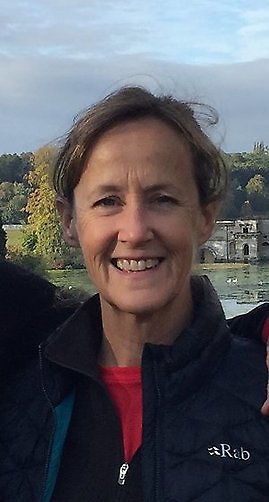Frequently Asked Questions
How much will it cost?
Initial consultation and treatment up to 90 minutes: £45.
Follow-up treatments up to 60 minutes: £40.
Does it hurt?
Because the needles are ultra-fine (usually 0.25 of a mm in diameter), inserting the needles often cannot be felt, however sometimes as the needle goes through the nerve endings in the skin a slight sting may be felt. As the needle connects with the body’s Qi a pulling or aching sensation is common. After that you just relax for 20 minutes or so!
Is it safe?
Traditional Chinese Acupuncture, when practiced by an appropriately trained professional, is very safe. There are very few adverse events recorded with Acupuncture and all BAcC acupuncturists are trained to needle safely and to recognise any serious reactions (which are very rare). The results of 2 independent surveys published in the British Medical Journal in 2001 by MacPherson et al and White et al concluded that the risk of serious adverse reaction to acupuncture is less than 1 in 10,000. A First Aid certificate is mandatory.
How does acupuncture work?
Traditional Chinese Acupuncture works according to the principles of Chinese Medicine, a wealth of knowledge built up over thousands of years. Acupuncture originated in China and the Far East according to records dating as far back as 2.5 - 3,000 years.
The ancient Chinese studied closely their natural surroundings and how they were affected by the changes in the seasons, the weather, time of day and many other factors. These observations were extended to explain the functioning of the body. They believed that a vital force of nature or Qi (pronounced Chee) exists everywhere and that different transformations of Qi describe all phenomena within the universe. In the body, Qi exists in physical forms such as the bones, muscle, blood and fluids. Non-physical forms of Qi exist as thoughts, feelings and emotions. Chinese Medicine does not separate the physical and non-physical causes and manifestations of disease, so physical problems may cause emotional problems and vice-versa. To give an example, long-term emotional stress can cause physical problems such as irritable bowel syndrome (IBS), headaches, painful periods or back pain.
Other theories also help to explain this view of the world, such as the theory of Yin and Yang and the theory of the Five Elements.
Yin and Yang describe the delicate balance that exists in nature and expresses a series of relationships, patterns and functons. It was first mentioned in the ‘Book of Changes’ c. 700 BC. This fundamental duality exists in nature, Yin cannot exist without Yang, Yin consumes Yang and Yin transforms into Yang and vice-versa. All phenomena can be described as being either Yin or Yang. For example Yin is ‘water’, ‘cold’, ‘quiet’ or ‘physical’, whereas Yang is ‘fire’, ‘hot’, ‘noisy’ or ‘non-physical’.
By balancing Yin and Yang within the body, health can be restored.
Yin and Yang represent Qi in all its forms. Qi is constantly flowing through and within our bodies and can be accessed, as it flows along specific channels (or meridians), at acupuncture points. Each channel relates to a specific organ within the body.
Acupuncture points possess different qualities and by combining points with each other, particular imbalances in the body can be restored. Only by a comprehensive study of a person’s whole functioning, both physical and emotional, can a diagnosis be made before successful acupuncture treatment is given.
How many treatments will I need?
This depends on your condition. A more ‘superficial’ or acute condition such as neck pain may only take a couple of treatments for noticeable improvements to be seen, but often about 6 are needed to get the best results. Other more long-term conditions may need 10 or more treatments as the problem is ‘deeper’ in nature. Often after this time top up treatments less often are all that is required to keep the condition under control, say every 1 to 2 months.
How should I prepare for an acupuncture treatment?
Do not drink alcohol or take recreational drugs prior to treatment. Try to avoid coffee or tea within 2 hours of treatment as this can discolour your tongue. The practitioner needs to see the true colour of your tongue. Try to have a meal within 6 hours of treatment. Wear loose clothing, which can be pulled up above elbows, knees and away from the abdomen.
What are the side-effects or after-effects?
Most people find acupuncture very relaxing during and after treatment and sleep well that night! Sometimes symptoms may feel worse for that day or the next but then start to improve. There may be reddening of the skin surrounding the needle during the treatment but this does not last. There may be slight bruising if the needle site bled as the needle was removed. Other responses to treatment may include tiredness or slight dizziness but don't last long.
Does my doctor need to know I am having acupuncture?
It is a good idea to tell your doctor at your next visit as any medications you are taking could be reduced as acupuncture starts to help your condition. It is safe to continue taking your medications whilst having acupuncture. Always seek the advice of your doctor before reducing your medications.
What is the difference between traditional acupuncture and medical acupuncture/dry-needling?
Traditional Acupuncture utilises the wealth of knowledge within Chinese Medicine, based on thousands of years worth of knowledge and practice, to treat symptoms of disease as well as the underlying cause. Results are deep and long-lasting. Practitioners should have atleast a 3 year degree level training in Acupuncture and Oriental Medicine. Medical Acupuncture is also called 'dry needling' and uses limited acupuncture points to treat localised muscle pain and trigger points. It tends to be used by doctors, physios and osteopaths. Usually these practitioners have only been on courses lasting 2-3 weekends and have limited knowledge about the huge array of benefits that acupuncture can bring.
What if I need to cancel my appointment?
Unfortunately if you cancel your appointment within 24 hours, you may be asked to pay for the treatment missed.

